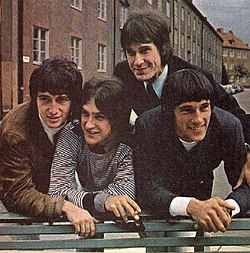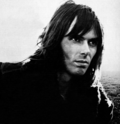The Kinks are an English rock band from Muswell Hill, London. Formed in January 1963, the group originally comprised the Davies brothers Ray (lead vocals, rhythm guitar) and Dave (lead guitar, vocals), Pete Quaife (bass, backing vocals), and Mick Avory (drums). [1] Quaife left the band for five months from June to November 1966, during which time he was replaced by John Dalton. In April 1969, Quaife left for the second and final time and was once again replaced by Dalton. [2] In May 1970, the Kinks expanded to a five-piece with the addition of John Gosling as their first full-time keyboardist. [3] This lineup remained stable until 1976, when Dalton left. [4] [5] The band underwent several lineup changes during the late 1970s, before stabilizing in late 1979 with a lineup of the Davies brothers, Avory, bassist Jim Rodford and keyboardist Ian Gibbons. [6] [7] After two more studio albums, Avory left the Kinks in July 1984 following numerous conflicts with Dave Davies, which had culminated in his exclusion from the recording of "Good Day" for their then-new album Word of Mouth . [8] He was replaced by Bob Henrit, who completed work on the album. [1] Gibbons left in 1989, with Mark Haley taking his place beginning with the tour in support of UK Jive . [9] [10] Haley remained a touring member, with the 1993 album Phobia recorded as a four-piece. [11]
Contents
After a European tour, Haley resigned from the Kinks in July 1993, with Gibbons returning to take his place for US dates two weeks later. [12] The group released a final live album, To the Bone , before disbanding after a final tour ending in June 1996 and appearing for the last time together at Dave Davies’ 50th birthday party in February 1997. [13] In 2018, the Davies brothers announced that they were working on new music together with longtime drummer Mick Avory, however since then there has been no studio release and not much indication the band is active.













